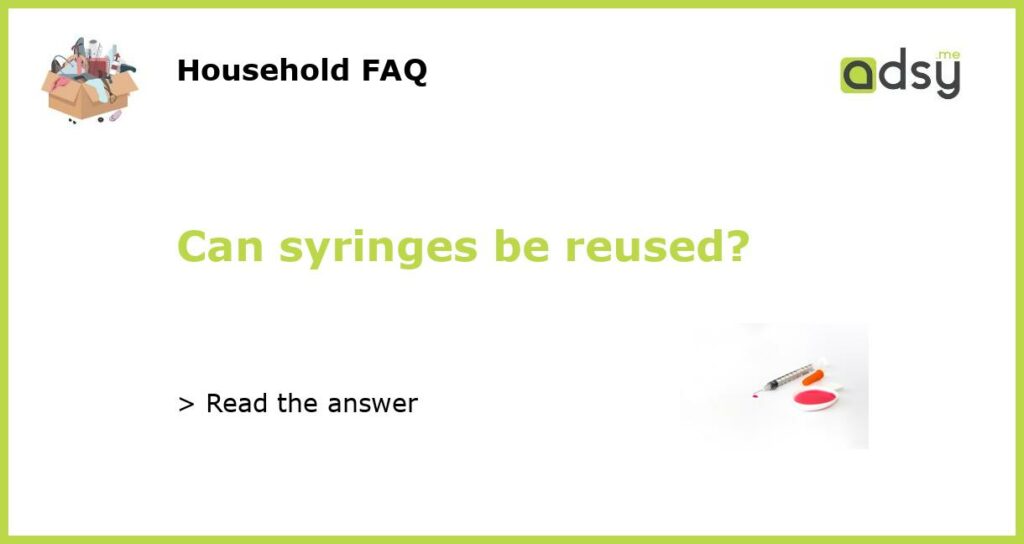Yes, syringes can be reused, but it is not recommended due to the risks involved
When it comes to medical equipment, especially syringes, it is always best to prioritize safety and hygiene. While it is technically possible to reuse syringes, it is strongly advised against due to the numerous risks it poses to both the individual reusing the syringe and the potential recipients of the reused syringe.
The dangers of reusing syringes
One of the main dangers of reusing syringes is the risk of infection. Syringes are designed to be used only once to ensure sterility and prevent the spread of contagious diseases. Reusing a syringe can introduce bacteria or viruses into the body, putting the user at risk of infection.
In addition to the risk of infection, reusing syringes can also lead to other complications such as needle blunting, leakage, and inaccurate dosing. Repeated use can dull the needle, making it less efficient and causing more pain upon insertion. The repeated use of the plunger can also lead to wear and tear, potentially leading to leakage or inaccurate dosing.
Proper syringe disposal
To ensure safety and avoid the risks associated with reusing syringes, it is important to practice proper syringe disposal. Used syringes should be immediately placed in a puncture-resistant container, such as a sharps container, to prevent accidental needlestick injuries.
Sharps containers are specifically designed to safely handle used needles and syringes, reducing the risk of injury or infection. These containers can usually be obtained from local pharmacies, healthcare facilities, or municipal waste agencies.
Alternative options
If you are concerned about the cost of constantly buying new syringes, there are alternative options available. Some areas have needle exchange programs or community health clinics that provide free or low-cost sterile syringes to individuals who need them.
Another option is to invest in a reusable syringe. Reusable syringes are designed to be easily disassembled and cleaned, ensuring proper sterilization before each use. It is important to note that reusable syringes require proper cleaning and sterilization to be safe for use.
In conclusion, while syringes can technically be reused, it is not recommended due to the potential risks involved. Reusing syringes can lead to infections, needle blunting, leakage, and inaccurate dosing. To ensure safety and hygiene, it is best to practice proper syringe disposal and, if needed, explore alternative options such as needle exchange programs or reusable syringes.






